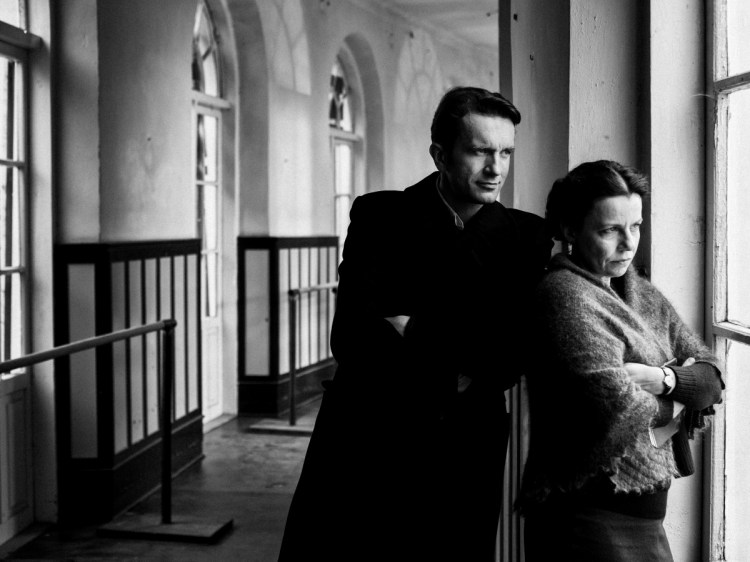You may feel in the first 10 minutes of Polish director Paweł Pawlikowski’s film “Cold War,” while watching the smoky, black-and-white look of it, that you’ve come home to Billy Wilder and Raymond Chandler country, so richly does it smell of bourbon and Camel cigarettes.
But soon you will watch the passage of an original work and a great love story played out over a black-and-white parade of 18 years, from Iron Curtain Poland in 1947 to Paris in 1956 to 1965.
For 85 minutes of playing time, director/writer Pawlikowski walks us through history with all the turmoil of those years — the great battles, slaughter, pogroms, political upheavals unseen but deeply felt — only to settle us down inside a haunting love story.
For those of you who grew up with the black-and-white classics, allow me to break it down in one image.
It is as if Ilsa Lund didn’t get on that plane in Casablanca with Victor Laszlo but stayed instead to live out her life with Rick Blaine. There you have it.
In “Cold War,” we find Wiktor (Tomasz Kot), a disillusioned musician who has been hired by the Communist Party, along with a select team, to put together a new academy of young folks designed to tour Europe and promote Poland’s native folk art while glorifying Stalin’s post-war utopia.
It’s in the interviews and casting that Wiktor meets Zula, (Joanna Kulig) a blonde teenage, straw-in-the-hair farm girl on probation, having done time for trying to kill her father.
Zula is among the young men and women rounded up from farms and towns to fill the cast.
Wiktor is immediately enchanted with her, and gets assigned to work with her and the others in building the show. It’s not long before we see the steam rising around them.
We’re not surprised when, after a sweaty rehearsal, we find them in a side room smashing their bodies together.
But there is so much more to this story than sex and politics.
Before it ends, you may suspect, as I did, that Pawlikowski is embracing the romantic notion that true love never really has an ending and that two broken souls will find and lose and find one another again somewhere on the streets of time.
From 1947 Poland to Yugoslavia and Berlin and finally 1965 Paris where Wiktor becomes a movie music arranger, Zula, who has become a celebrity of sorts, drops in and out of his life like summer rain to water his obsession.
Kulig, an actor with an impressive classical education and long list of film and Polish television credits that belie her youthful appearance, delivers a subtle and stunning performance. You can bet Hollywood’s computers are humming out contract offers.
Kot is superbly cast as Zula’s Wiktor. At 6 foot 6 inches tall, it must have been a cameraman’s problem to keep him from towering over his Zula.
Łukasz Zal and his camera walked through every moment by Pawlikowski’s side throughout, and together they should share the gold.
“Cold War,” nominated now for Best Director Best Foreign language film and most definitely Best Cinematography, will dominate the chatter at the ball. My bet is solidly on all three.
Pawlikowski’s film, now topping the list for best foreign film, may not only be this season’s best but one of the great films of our time.
J.P. Devine, of Waterville, is a former stage and screen actor.
Comments are not available on this story.
Send questions/comments to the editors.



